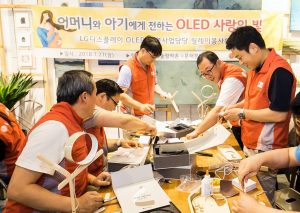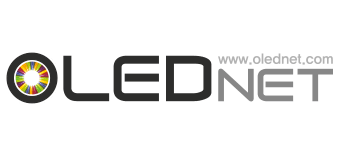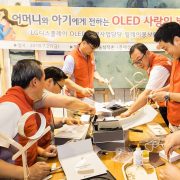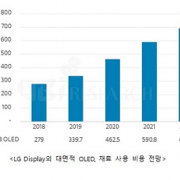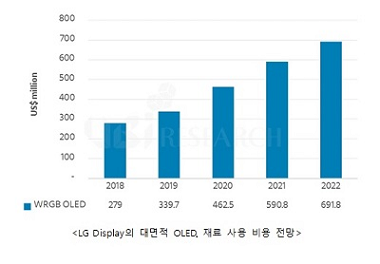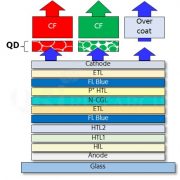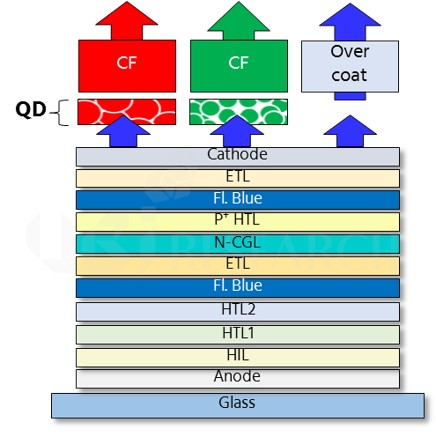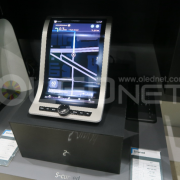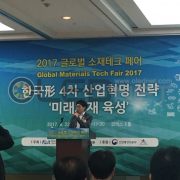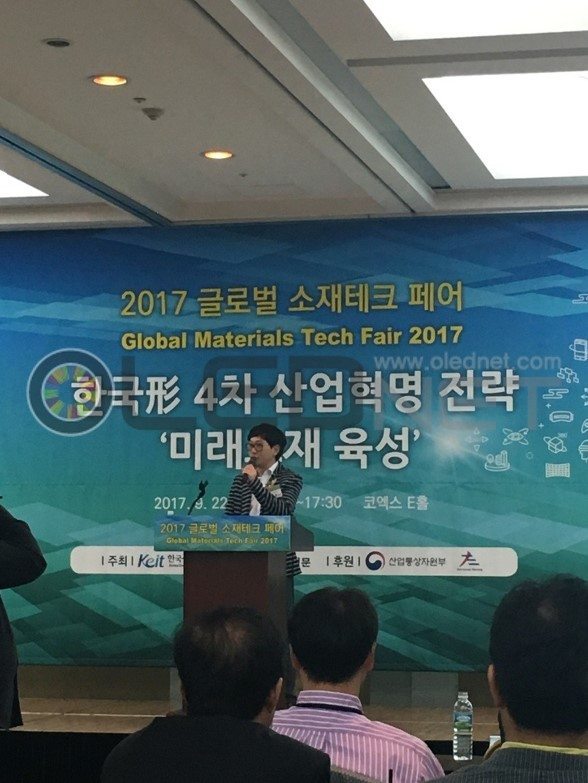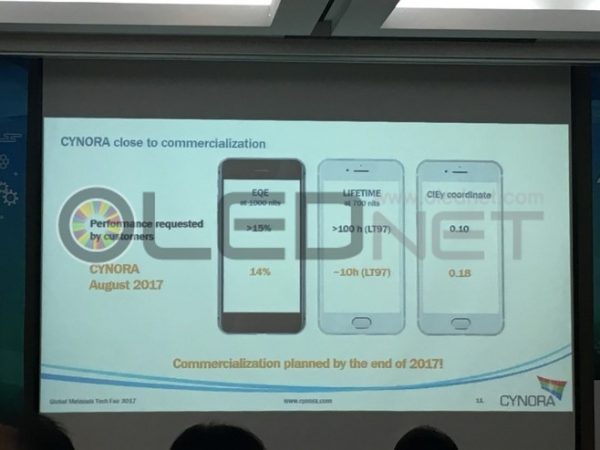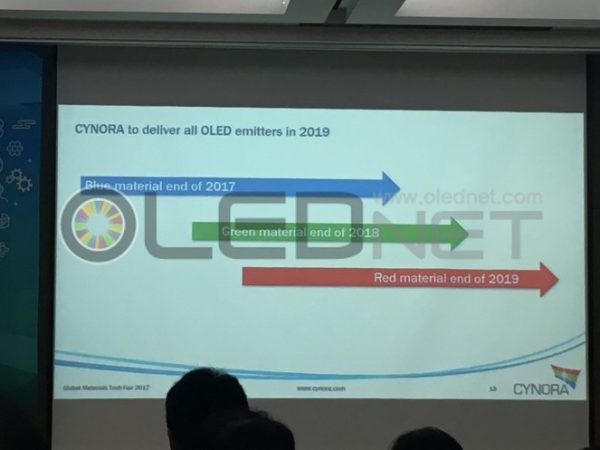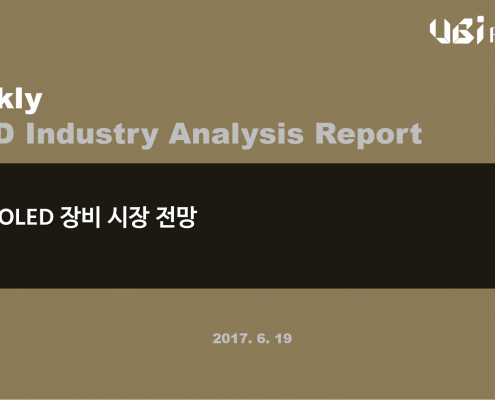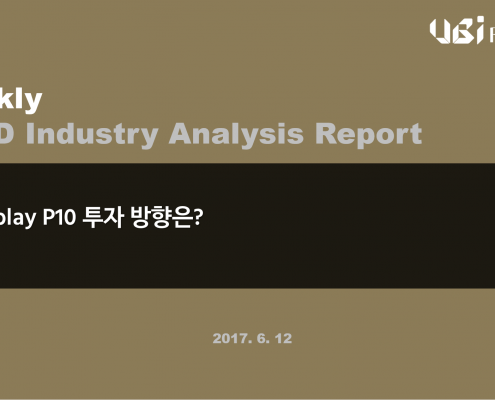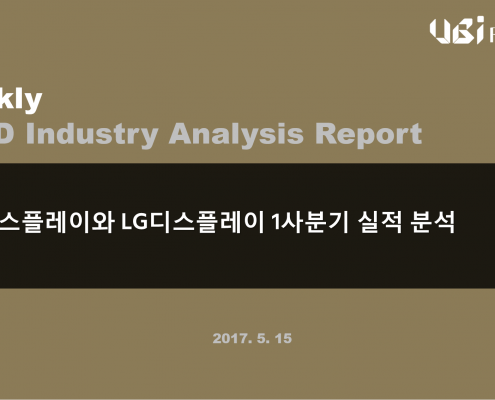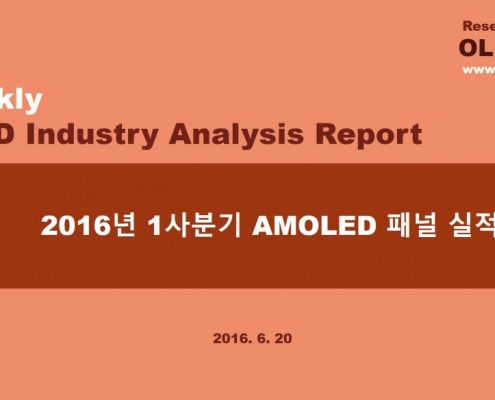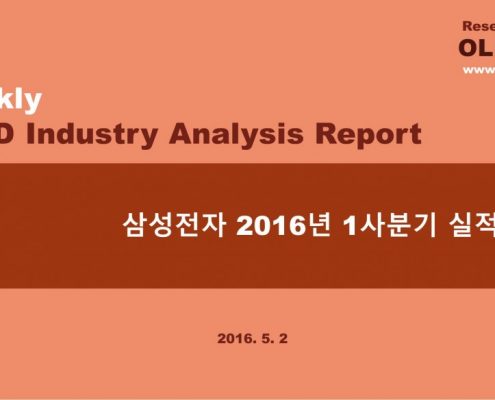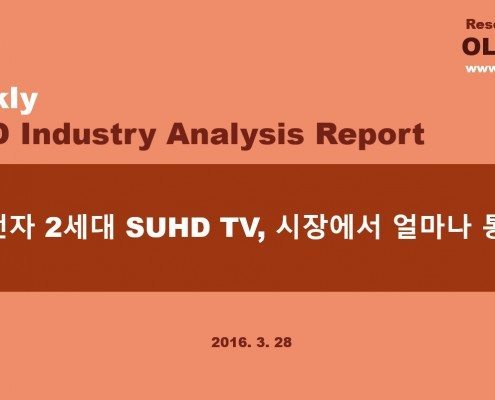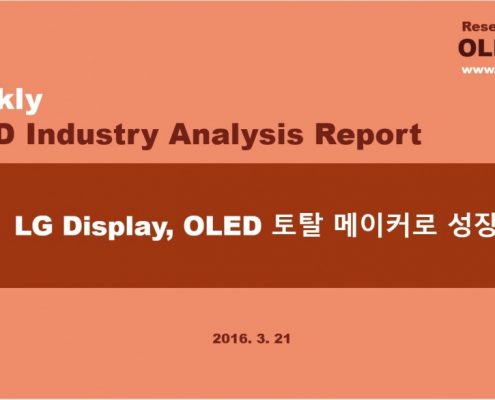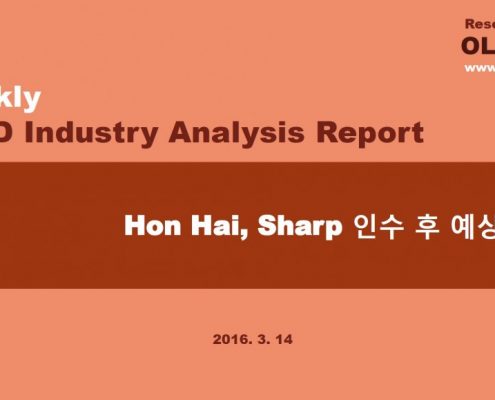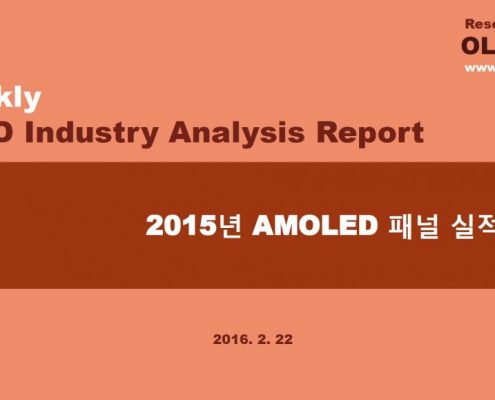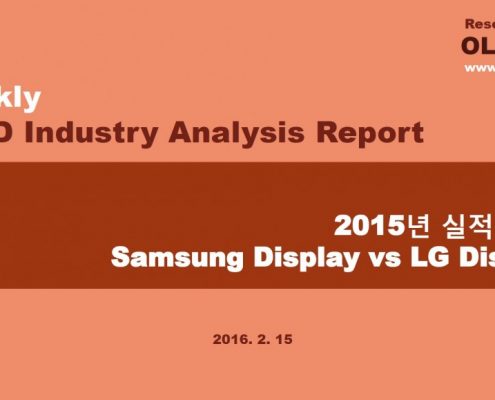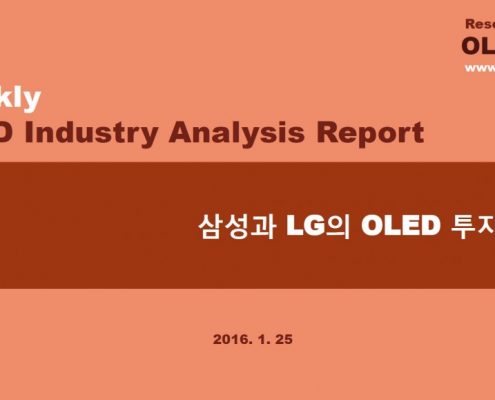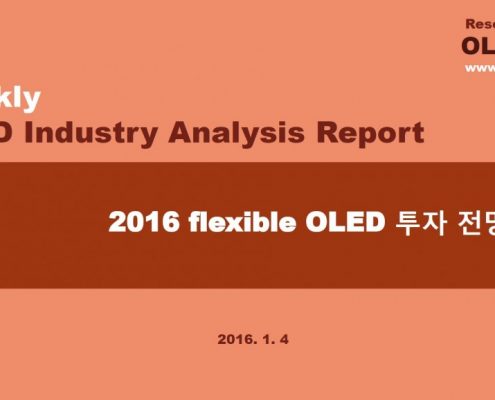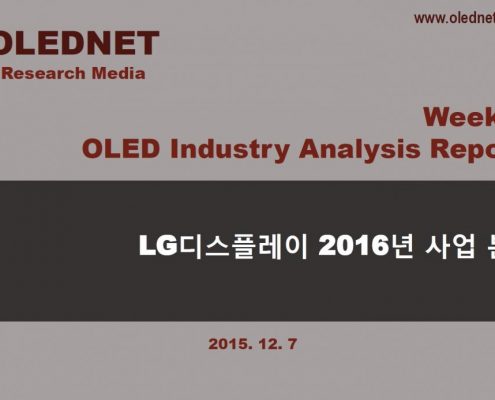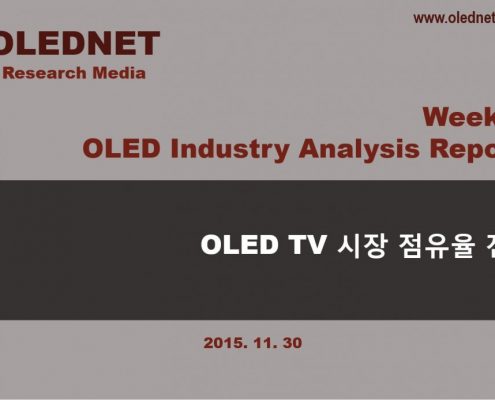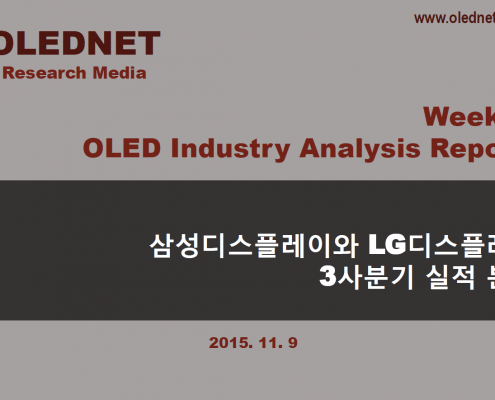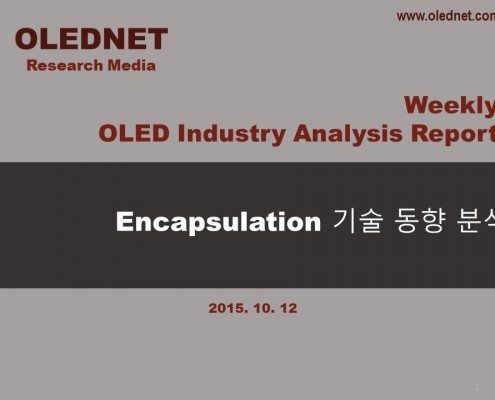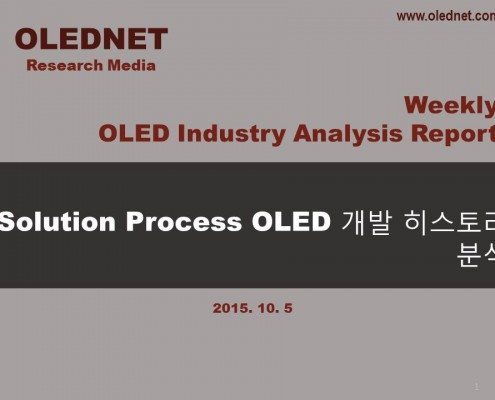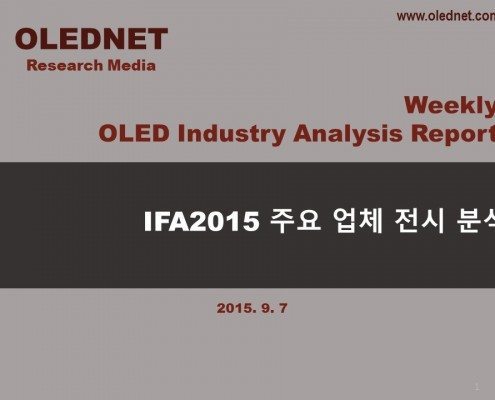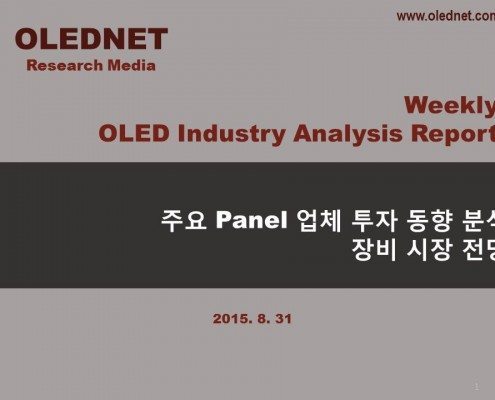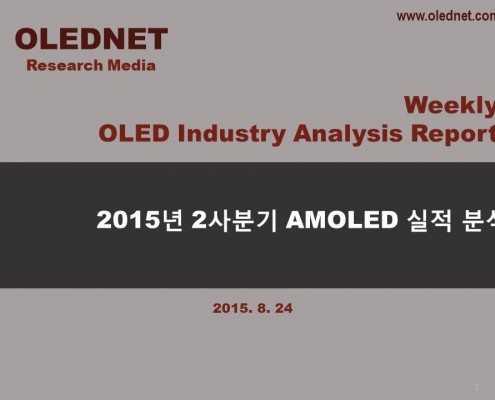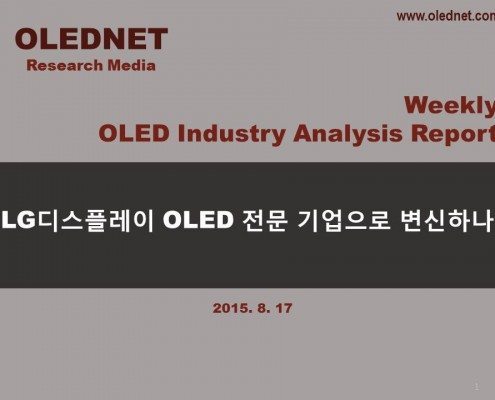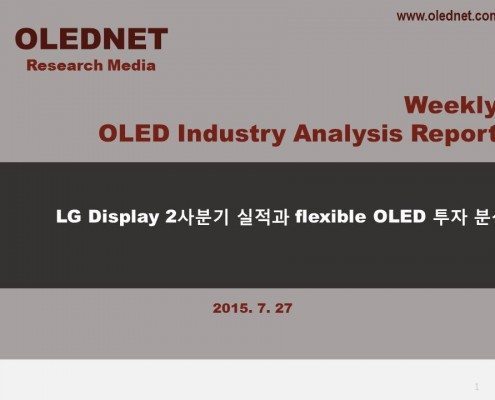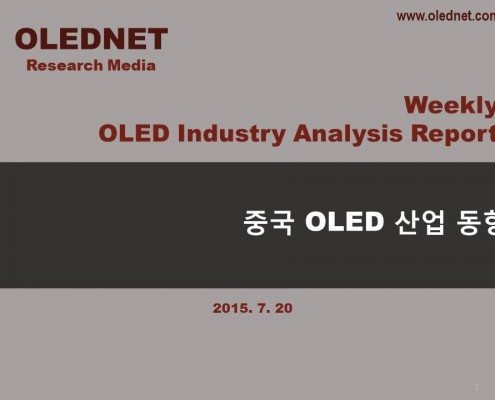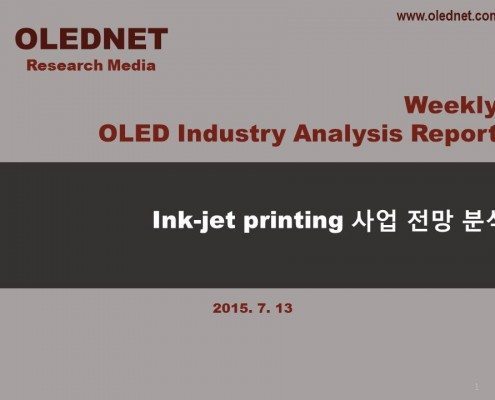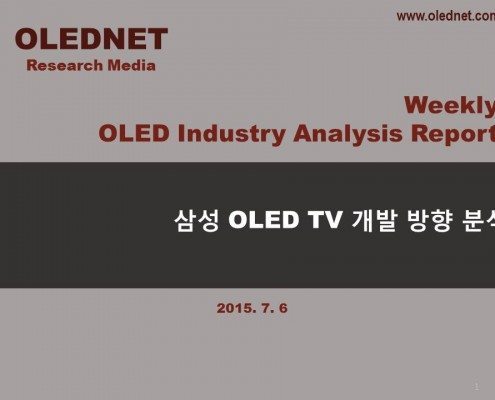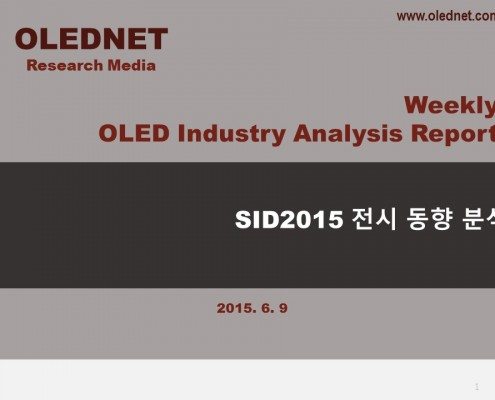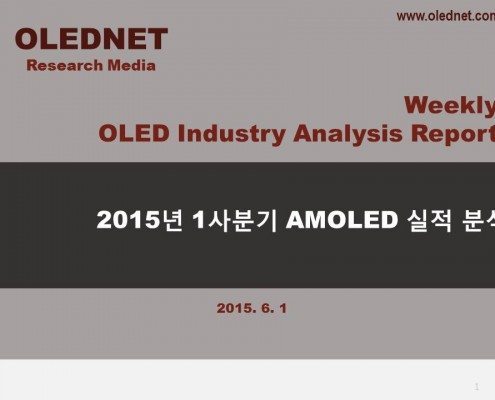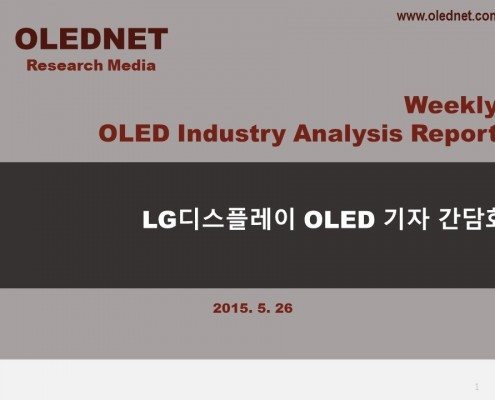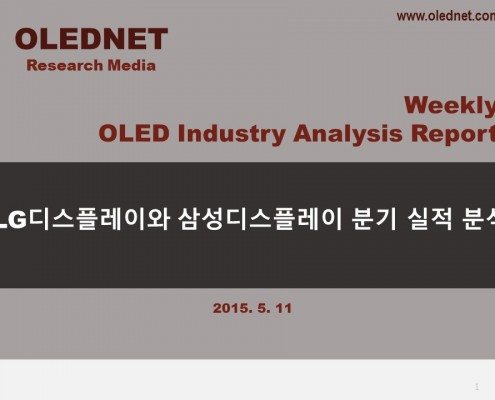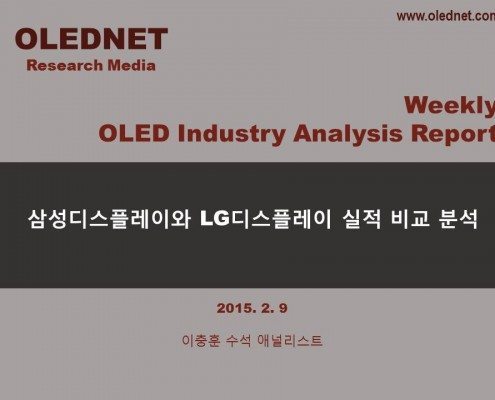Last May, Audi announced that it implemented a camera function in the side mirrors of the electric vehicle SUV e-tron quattro and built an OLED display inside to realize an air resistance coefficient of 0.28 cd. Audi noted that this not only improves fuel efficiency, but also eliminates a blind spot to help drivers drive.
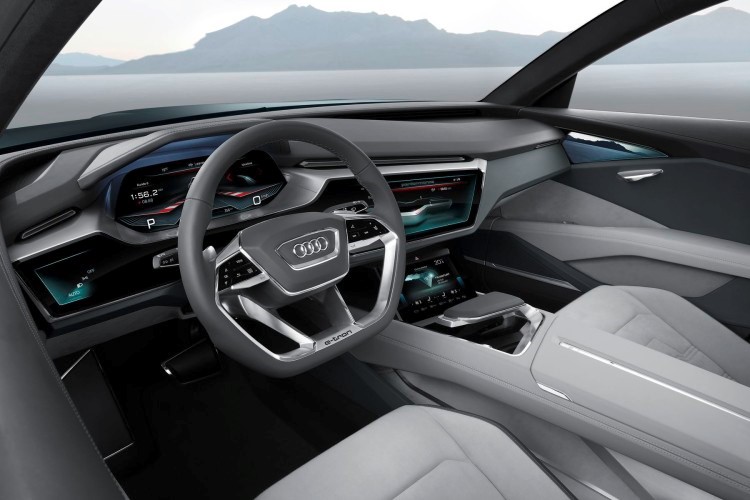
<Interior concept photo of Audi e-Tron released in 2015, Source: insideevs.com>
In addition, all the interior displays are applied with OLED in e-tron quattro. OLED is considered to be suitable for automotive displays because it can achieve higher contrast ratio, faster response speed, and higher visibility due to wide viewing angle, compared to LCD.
Continental corporation, a supplier of automotive parts, also introduced several advantages of mirrorless cars with two OLEDs on its homepage and stated that it is possible to provide better visibility even in dark or rainy conditions.
Meanwhile, not only Samsung Display and LG Display but also Chinese panel makers are introducing various OLED products to market.
Samsung Display exhibited its rollable CID (center information display) and curved 12.4- inch CID, which can be used to adjust the screen size using OLEDs, in SID 2018 held in May.
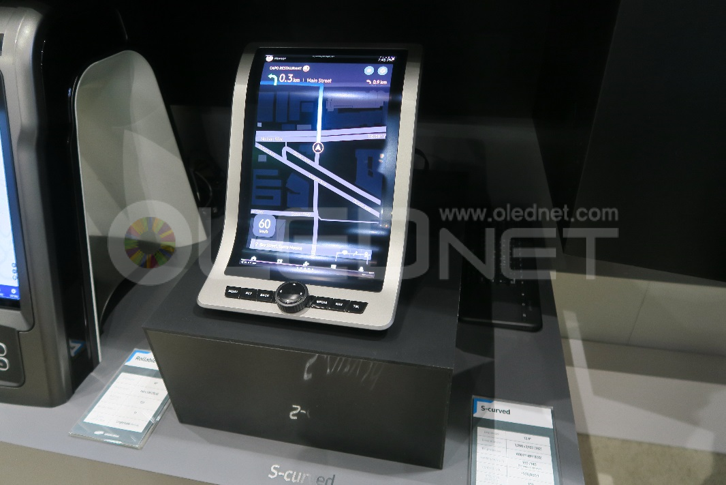
<Samsung Display’s 12.4 inch curved CID applied with OLED>
Also, a variety of automotive products using OLEDs such as 6.22-inch unbreakable steering wheel OLED and 4.94-inch transparent OLED head up display HUD (head up display) were introduced.
BOE exhibited 12.3-inch automotive flexible OLEDs in SID 2018, and Tianma and Truly introduced automotive rigid OLEDs in Lighting Japan 2018 held in January 2018.
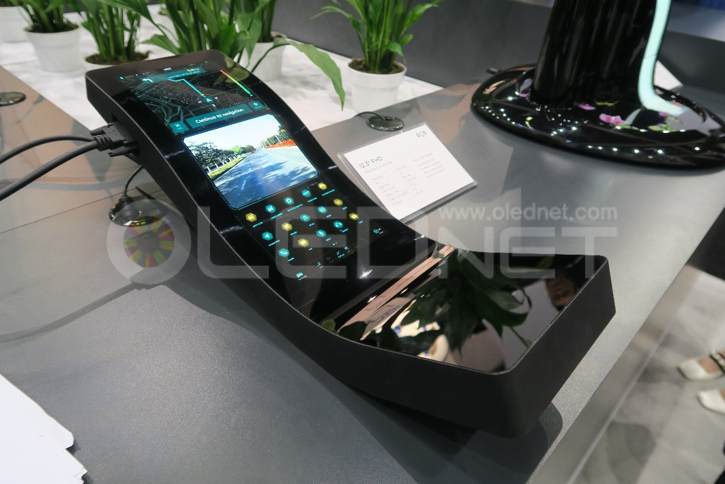
<12.3-inch flexible automotive OLED of BOE>
Since the automotive display field requires more customization than mobile devices and TVs, it is attracting attention as an industry that is expected to generate high added value.
Samsung Electronics emphasized the automotive OLED panel business as a future business at the Investors Forum held in Singapore in early June, and estimated that “OLED panels for electric field will grow from 100,000 sheets this year, to 1 million sheets in 2020 and 3 million sheets in 2022.”
